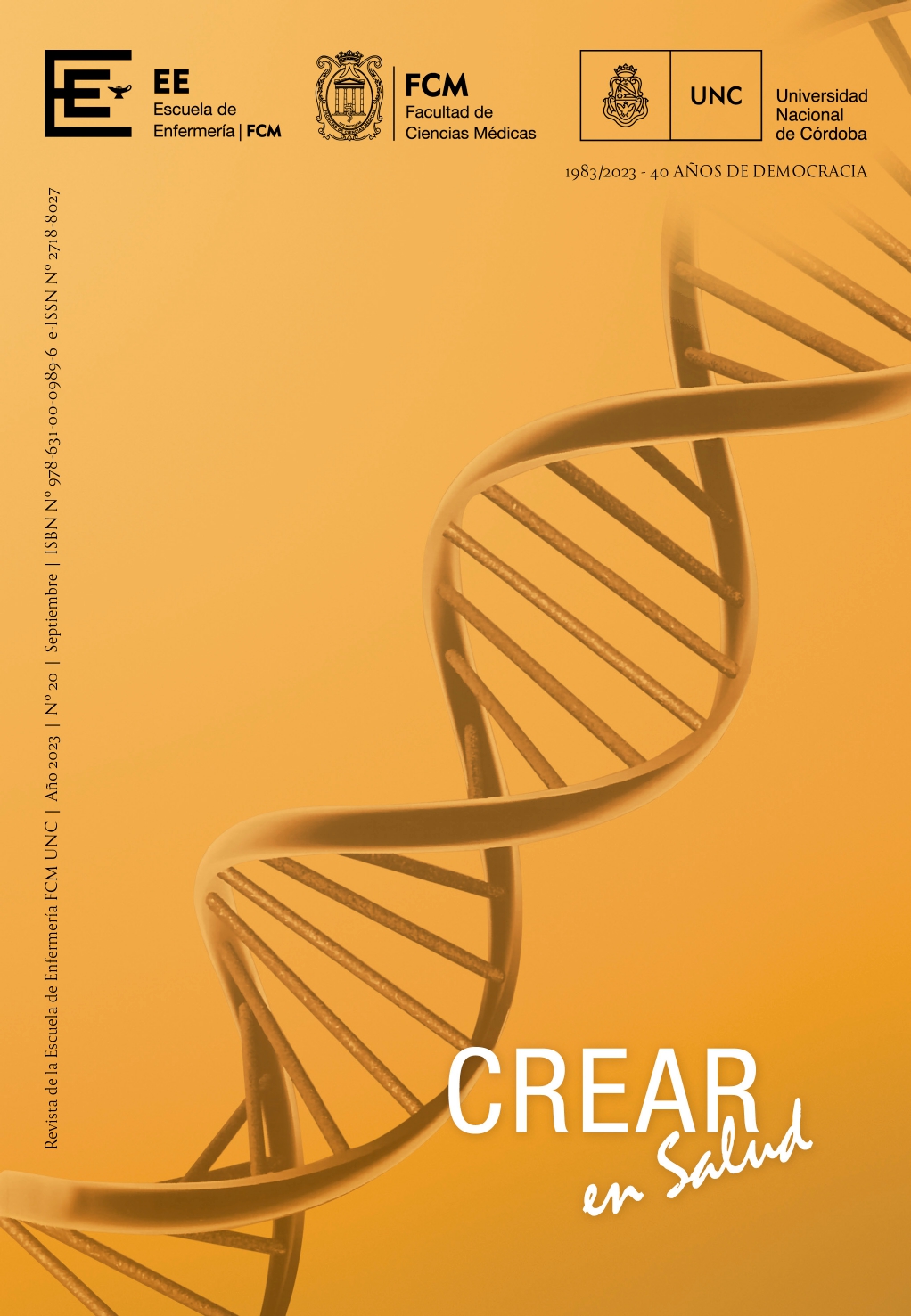Learnings and improvements a in virtual higher education facing the return to in person learning
Keywords:
Keywords: Students, learnings, improvements, virtual formation.Abstract
ABSTRACT
In 2020, the COVID-19 public emergency was declared, forcing higher education to incorporate the virtual modality. The virtual study experience has not been completely negative. The objective proposed was to identify the learnings and improvements in education acquired during the virtual modality period by undergraduate university students, who are now returning to presence learning, in the National University of Córdoba in 2022. A cross-sectional, quantitative and descriptive study was carried out, with a population of 200 students. The data collection instrument used was an anonymous, self-administered questionnaire. All the data collected underwent a descriptive statistics analysis. As for “learnings,” the surveyed students defined as positive the interaction types, the development of discipline, the persistence and motivation, the use of technology, the development of interpersonal relationships and a sense of belonging. However, a difference regarding the satisfaction of individual needs among the surveyed groups was found. Satisfaction was also found regarding the communication available to students and its organization, yet answers differ in the case of teacher-student relationships. In “improvements,” the surveyed students acknowledged the different information search skills; the ability for flexibility; the active participation; the development of planification and monitoring skills; the use of virtual spaces; feeling digitally included; having access to information; relating to a learning style; and, finally, the use of technical language. The present study suggests a learning and improvement process in education, acquired during the virtual modality period by undergraduate university students
References
REFERENCIAS BIBLIOGRÁFICAS
Amaya, S. (2017). La autonomía en la educación virtual: Como adquirir autonomía en nuestra evolución virtual a la educación. https://padlet.com/ samaya/g8giy9w5kufg
Amaya Amaya, A. Zúñiga Mireles, E. Salazar Blanco, M. Ávila Ramírez, A. (2018). Empoderar a los profesores en su quehacer académico a través de certificaciones internacionales en competencias digitales. Revista Apertura, 10 (1), 104-115. https://www.redalyc.org/journal/688/68855405007/68855405007.pdf
Brea, L. (2014). Factores determinantes del sentido de pertenencia de los estudiantes de Arquitectura de la Pontificia Universidad Católica Madre y Maestra, Campus Santo Tomás de Aquino. [Tesis Doctoral, Universidad de Murcia]. https://digitum.um.es/digitum/bitstream/10201/42306/1/Informe%20tesis%20doctoral%20Leyda%20BreaOct.pdf
Chiecher, A., Donolo, D. y Rinaudo, M. C. (2009). Gestión del tiempo y el ambiente de estudio en cursos online. Estudio comparativo de tres grupos de estudiantes de diferente perfil. I Congreso Internacional de Investigación y Práctica Profesional en Psicología. XVI Jornadas de Investigación Quinto Encuentro de Investigadores en Psicología del MERCOSUR. Facultad de Psicología - Universidad de Buenos Aires. https://www.aacademica.org/000-020/331.pdf
Estrada Sentí, V. Cruz, L. Rodríguez Andino, M. Rodríguez, J. (2010). El aprendizaje virtual y la gestión del conocimiento. Congreso internacional virtual educa. https://www.semanticscholar.org/paper/El-aprendizaje-virtual-y-la-Gesti%C3%B3n-del-Sent%C3%AD-Lara/b07b889f9a477f654f0d82422adfdea04fd9a457
Gamboa Moral, M., Briceño Martínez, J. y Camacho González, J. (2015). Caracterización de estilos de aprendizaje y canales de percepción de estudiantes universitarios. Revista Opción 31 (3), 509 – 527. https://www.redalyc.org/pdf/310/31045567026.pdf
García Aretio, L. (2020). Bosque semántico: ¿educación / enseñanza / aprendizaje a distancia, virtual, en línea, digital, eLearning…?. RIED. Revista Iberoamericana de Educación a Distancia, 23 (1), 9–28. https://www.redalyc.org/jatsRepo/3314/331462375001/331462375001.pdf
García, E. L. y Ledesma Saustre, O. (2012). La búsqueda de información. Habilidades a desarrollar para un adecuado manejo de la información en entornos virtuales. Mendive, 10 (3), 241-245. https://mendive.upr.edu.cu/index.php/MendiveUPR/article/view/539
Honorable Congreso de la Nación Argentina. Ley N° 27571 (2020). Acuerdo Constitutivo del Banco Asiático de Inversión en Infraestructura (baii). https://www.argentina.gob.ar/normativa/nacional/ley-27571-344307/texto
Kunzi, S. (2020). ¿Cómo sostener el vínculo docente- alumno- familia- en tiempos de virtualidad? Télam digital. https://www.telam.com.ar/notas/202004/455367-opinion-coronavirus-educacion-virtual.html
Pérez Alcalá, M. S. (2009). La comunicación y la interacción en contextos virtuales de aprendizaje. Revista de innovación educativa 1(1). https://www.udgvirtual.udg.mx/apertura/index.php/apertura/article/view/15/18
Presidencia de la Nación Argentina. Decreto Necesidad y Urgencia N°260 (2020). Amplía la Emergencia Sanitaria y dispone la adopción de medidas para contener la propagación del nuevo coronavirus. https://www.argentina.gob.ar/coronavirus/dnu
Presidencia de la Nación Argentina. Decreto Necesidad y Urgencia N°297(2020). Aislamiento social preventivo y obligatorio. https://www.argentina.gob.ar/normativa/nacional/decreto-297-2020-335741
Surdez, E. G., Sandoval, M. del C. y Lamoyi, C. L. (2018). Satisfacción estudiantil en la valoración de la calidad educativa universitaria. Revista Educación y Educadores, 21 (1), 9-26. https://www.redalyc.org/journal/834/83455923001/html/
Valencia Gutiérrez, M. y López Méndez, M. (2018). Los estilos activo, reflexivo, teórico, pragmático y la competencia. Revista Iberoamericana de Producción Académica y Gestión Educativa. 5 (9). https://www.researchgate.net/publication/329626015_Los_estilos_activo_reflexivo_teorico_pragmatico_y_la_ competencia_Active_reflective_theoretical_pragmatic_and_competitive_styles
Downloads
Published
Issue
Section
License
Copyright (c) 2023 Crear en Salud

This work is licensed under a Creative Commons Attribution-NonCommercial 4.0 International License.



